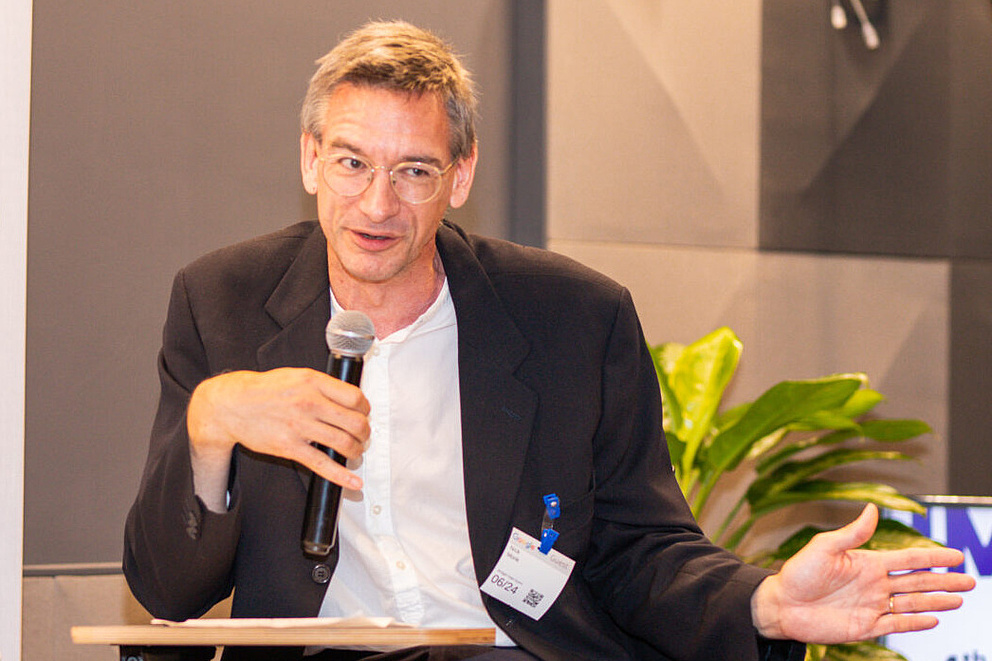

Contact
Press, Communications and Marketing
Tel.: +49 228 833-144
Fax: +49 228 833-441
presse[at]avh.de
New knowledge often emerges in areas that fall between disciplines. Nick Monk’s research and teaching work can be best summed up as “mathematics meets biology”. Since earning his doctorate in Theoretical Physics, the British mathematician has worked along the interface between mathematics and biology. “Mathematical models map complex biological processes, show the logic that governs them and enable a more profound understanding of these processes. At the same time, fundamental questions regarding concepts such as ‘collective behaviour’ and ‘decision making’ that are used in biological research have influenced the direction of mathematical research”, reports Monk. “These two disciplines shed light on each other, and the full potential this interface offers comes to light only in the course of a dialogue between highly qualified researchers on both sides.”
In the course of his career, the mathematician has supported and been involved in the growth and development of the disciplines Mathematical Biology and Computational Biology. For example, the recent head of the School of Mathematics and Statistics at the University of Sheffield has set up numerous research programmes, summer schools, conferences and workshops in and outside the United Kingdom over the last 25 years in order to build a worldwide community of specialists in Mathematical Biology and Computational Biology. He also has long-standing relations with AIMS Ghana and has instructed several courses in Mathematical Biology there. For Monk, it is particularly important, especially in his role as teacher and mentor, to help young researchers understand how important mathematical models are for the life sciences and to develop their modelling skills. He plans to continue pursuing this objective at AIMS in Ghana as the chair for the African continent.
Embedding an appreciation of key modelling skills in as wide a community of life scientists as possible is an important step in responding to the needs of Africa.
When it comes to training young researchers in mathematics, Monk also finds it important to get girls and women excited about mathematics and to always counter any “fear of mathematics” right from the start. He aims to make vital contributions to the development of mathematical expertise in the area of modelling, specifically for the life sciences. To accomplish this, Monk wants to work together with mathematicians and biologists who work in these fields in Ghana and with colleagues in Germany. For example, collaborative projects in Ghana are already planned with Dr Emmanuel S. Adabor from Ghana Institute of Management and Public Administration and with researchers at the CSIR Crops Research Institute and the Plant Genetic Resources Research Institute.
Plans foresee using machine learning to analyse complex datasets and develop models. In Germany, Nicholas Monk will be working primarily with Dr Aneta Koseka, the head of the Lise Meitner Research Group Cellular Computations and Learning at the Max Planck Institute for Neurobiology of Behavior in Bonn. This work will revolve around developing mathematical expertise in the area of modelling, specifically for the life sciences.
